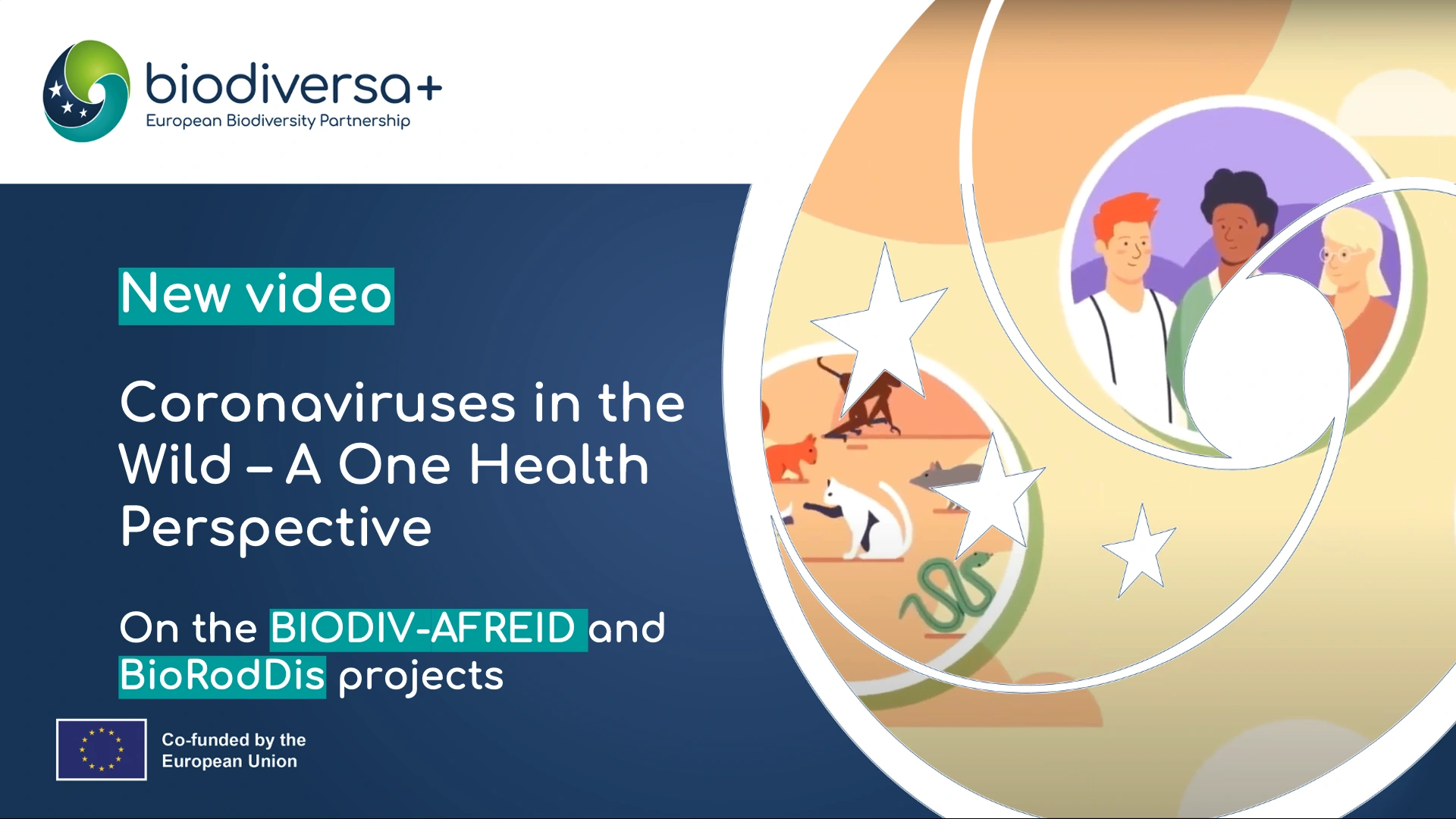Did you know that coronaviruses are naturally present in many animal species? Two Biodiversa+ projects, BIODIV-AFREID and BioRodDis, have delved into the intricate interplay between wild animals, coronaviruses and human health. Discover their findings in their captivating new video and learn about the importance of One Health to safeguard global health.
Biodiversa+ proudly presents the findings of BIODIV-AFREID and BioRodDis in its latest video. Against the backdrop of the COVID-19 pandemic, the projects have embarked on a journey to investigate coronaviruses in the wild. Their multidisciplinary teams studied the diversity of coronavirus strains among bats and rodents, in natural habitats and urban environments. Collaborating closely with local stakeholders, they collected ecological and biological data across Europe and Central Africa. By studying patterns of occurrence, the projects aimed to gather new insights into the dynamics and occurrences of these viruses.
The One Health approach acknowledges the interconnectedness of human, animal, and environmental health. Factors like environmental disruption and human influence can disrupt the balance in relationships between animals with their viruses, creating new potential pathways for the emergence of diseases. Understanding the intricate relationships between coronaviruses and specific species, their patterns of occurrence and recognising the connection of human, animal, and environmental health, is crucial to anticipating and mitigating the emergence of new diseases.
BIODIV-AFREID and BioRodDis have unveiled new knowledge on the diversity of coronaviruses, their associations with specific species, and patterns of occurrence across seasons.
Watch the video now!
BioRodDis explores the interlinkages between small mammal biodiversity and zoonotic diseases in urban green spaces and forests over Europe ; it integrates new key research directions among which multiple pathogen diversity, host microbiome and interactions with socioeconomic contexts.
BIODIV-AFREID investigates how biodiversity conditions influence the transmission of infectious agents from small mammals into human populations in tropical African forests.
Both projects were funded by Biodiversa+ under our BiodivHealth call.




